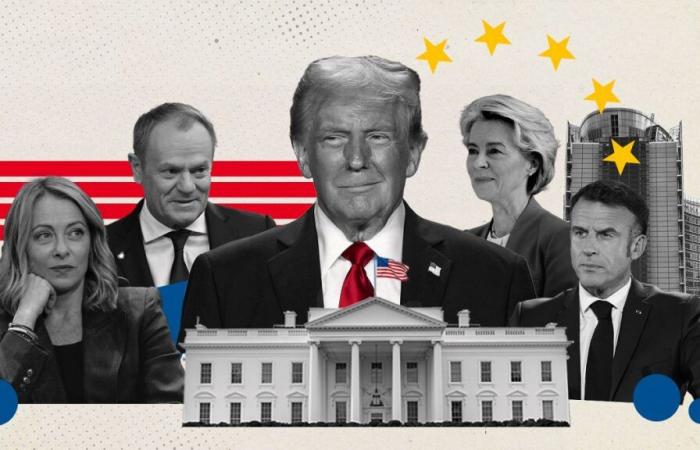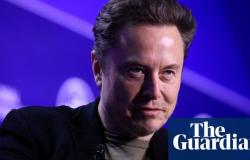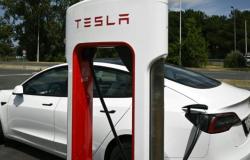In anticipation of Donald Trump's return to the White House next January, the European Union is taking the first steps to develop a unified strategy.
ADVERTISEMENT
Donald Trump is back!
This is the new reality facing the European Union since American voters went to the polls and handed the Republican a resounding victory, sweeping the seven key states that were up for grabs.
Mr. Trump's return to the White House was not exactly an earth-shattering surprise for Brussels, as opinion polls suggested an incredibly close race, where any outcome was possible. Nevertheless, the return of a man with such an aversion to the multilateral system, while the world is in the grip of brutal wars, gives civil servants and diplomats a cold sweat.
How should the EU navigate these troubled waters?
So far, nothing has been set in stone, no common line has been adopted and no guidance document has been published. The work is still in progress and could take up to a few months to become a unanimous and well-established strategy.
However, an informal summit in Budapest last week and the confirmation hearings of European commissioner candidates have provided the first clues about how the EU intends to deal with the second Trump administration.
Here's what we know.
Let's talk about it
Despite the bruising experience of the first Trump presidency, the EU wants to give the president another chance. The reason is obvious: America is too big, too important, to be ignored and act as if nothing had happened. Crucially, it is also Europe's oldest ally and its main security provider.
“The European Union needs the United States and only through strengthened cooperation can we tackle common challenges“, declared the Cypriot president Nikos Christodoulides during his participation in the Budapest meeting.
The Prime Minister of Luxembourg Luc Frieden made similar remarks and called on the EU to develop a “friendly partnership” without abandoning its principles. Mr. Frieden also called for moderation in the debate, given that Mr. Trump's foreign policy agenda is not yet decided.
“Now we will have to see what exactly President Trump will do, once he is president, whether he will follow through on everything he said on the campaign trail, but a lot of things are still very vague“, Mr Frieden said. “So let's talk to him, let's listen to him, and then we will have to adapt with a strong collective European response.”
EU leaders of all political persuasions agree that dialogue is key to ensuring the traditional alliance survives Mr Trump's intransigent “America first” mentality, which will directly counter to the bloc’s deep-seated commitment to the rules-based order.
During his confirmation hearing, Kaja Kallawho is set to become the bloc's foreign policy chief, promised to make the EU's voice heard on the world stage amid the cacophony.
“Isolationism has never worked well for America“, Ms. Kallas told lawmakers. “My intention is that Europe is present around these tables when we talk about Europe, that we are not left out, that we have our say.” she added.
Let's deal
The European Union has no illusions: discussions will not be enough to resolve all the problems.
Brussels and other capitals are aware of Trump's notoriously transactional approach to diplomacy, some of which he suffered firsthand during his first term.
The Danish Mette Frederiksen made headlines in 2019 when she called Trump's proposal to buy Greenland “absurd”, sparking the billionaire's ire. Today, while the world is in flames, the two leaders are ready to collaborate again.
“We must convince all Americans that there should be no conflict between us on whatever issues we discuss, including trade” said Mette Frederiksen in Budapest.
Commerce will be one of the main battle lines between the two shores of the Atlantic.
Evoking a glorified image of 1980s America, Mr. Trump has repeatedly threatened to impose 10% tariffs on all imports entering the country. These measures, if they were to be introduced, could cause untold devastation in the EU, an exporting power that relies heavily on global trade to grow and compensate for weak domestic demand.
Simon Harristhe Irish Prime Minister, believes that directly appealing to Trump's corporatist instincts could be a way to appease his protectionist instincts and make him understand that America has more to lose than to gain with untested tariffs .
“President Trump is a businessman, he is somewhat transactional and I think he will understand that the relationship in terms of trade is a two-way relationship” he said.
“We must be aware that the risk of a transatlantic trade shock has now increased. It's a fact, we have to fight our way through these things“added Mr. Harris.
Ursula von der Leyen, who strongly believes in the bond between the EU and the United States, suggested discussing “common interests” with the White House and “then starting negotiations”.
His first speech? Buy more American LNG.
“We still receive a lot of LNG through Russia, from Russia“, she said in Budapest. “Why not replace it with American LNG, which is cheaper and lowers energy prices ?”
Ms Von der Leyen and the European Commission, which has exclusive competence to set the bloc's trade policy, will spearhead the behind-closed-doors effort to offer Mr Trump a deal soft enough to make him change his position. 'notice.
The stage is set for an all-out confrontation: last month, during a campaign rally, the Republican warned that the “adorable” EU would pay a “heavy price” for its constant trade surplus with America.”
Let's strengthen the EU's position
The future European strategy will depend grande part of Mr. Trump, but also of the EU itself.
His first term left the Union licking its wounds. French President Emmanuel Macron has taken it upon himself to promote the concept of “strategic autonomy” to make the EU less dependent on global partners and more resilient to external shocks. Mr. Macron's thinking eventually took hold and inspired legislative proposals aimed, for example, at strengthening the national production of green technologies and electronic chips.
The emphasis will be on defense. Mr Trump said he would “encourage” Russia to do “whatever it wants” with European countries that fail to meet NATO spending targets and pledged to review military aid and financial aid to Ukraine, which could deprive the war-torn country of the advanced weapons America so desperately needs.
This catastrophic scenario weighs on European leaders who are preparing for the next four years.
“We must be realistic as Europeans: we cannot approach the transatlantic alliance from a position of weakness“, declared the Greek Prime Minister Kyriakos Mitsotakis. “Europe cannot change the world. But it can certainly change itself to cope with the changing world, hence the discussion we will have.
His Polish counterpart, Donald Tuskdeclared that “the era of geopolitical outsourcing is over”, while the Italian Giorgia Meloniwhose ideology shares some similarities with Trump's worldview, said she was “absolutely convinced” that Europe would be able to guarantee its “independence” and invest more in defense.
“Ask not what the United States can do for you, ask what Europe should do for itself,” Ms. Meloni said, reimagining John F. Kennedy’s iconic quote.
Most European leaders agree that whatever the United States' attitude, the Union must stand firmly alongside Ukraine to contain Vladimir Putin's expansionism. The notable exception is Hungary's Viktor Orbán, who called for a rapid ceasefire in order to allow negotiations with Russia, but whose remarks were rejected by Volodymyr Zelensky, who described them as “nonsense”.
Stay united
Luigi Scazzierisenior fellow at the Center for European Reform (CER), believes that European leaders are trying to “project unity and avoid falling into confusion.” But this unity, he warned, could collapse if the common strategy to confront Trump ends in failure and capitals seek tailor-made deals, undermining Brussels in the process.
“When it comes to diplomatic unity on issues like China or Ukraine, the challenge is that some members, like Italy or Hungary, believe they have a privileged channel with Trump, and therefore can be difficult to keep on board “, Mr. Scazzieri told Euronews.
Faced with an unpredictable and undisciplined White House, some choose to look on the bright side. The return of Mr. Trump brings “possible problems” but also “possible opportunities”, said the Swede Ulf Kristerssonurging Europe to increase its military spending.
Emmanuel Macron, whose legacy at the end of his presidency could easily be defined by Donald Trump's next actions, presented the question of defending Europe's interests as a landmark test.
“This must be neither in a naive Trans Atlanticism, nor in the questioning of our alliances, nor in a narrow nationalism which would not allow us to take up this challenge facing China and the United States of America.“, Mr Macron told his counterparts in Budapest.
“This is a historic moment for us Europeans, which is decisive.”






